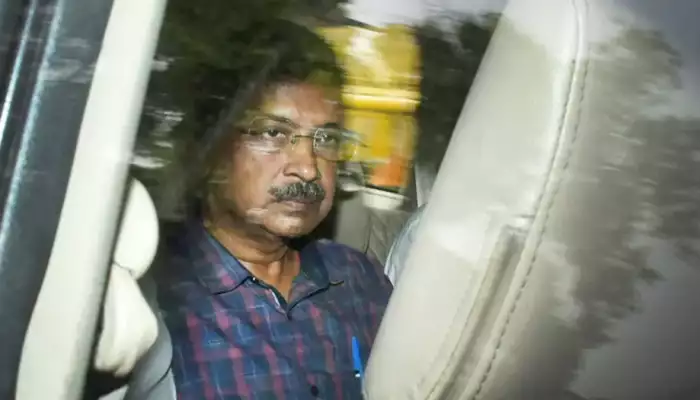
Arvind Kejriwal, one of the key figures of the Indian opposition and a major critic of Prime Minister Narendra Modi, has been granted bail in his ongoing corruption case, Indian media reported on Thursday.
A Delhi court ruled that the Delhi chief minister could be released after rejecting a request from the Enforcement Directorate, India's financial crime investigation agency, to hold the decision for 48 hours.
He is expected to leave the Tihar Prison in Delhi once his bail bond is paid.
Kejriwal was arrested in March ahead of India's weekslong election. He was granted temporary bail by the Supreme Court in May to campaign in the elections, but returned to jail at the beginning of June.
His supporters called his detention a "political conspiracy" by the ruling Bharatiya Janata Party (BJP).
Why was Kejriwal arrested?
The Enforcement Directorate arrested Kejriwal on March 21 on corruption charges.
The lawmaker's opposition party Aam Aadmi Party (AAP) was accused by the government-controlled agency of accepting 1 billion rupees ($11.9 million, €11.05 million) in bribes over a 2021 liquor sale policy.
Modi's government has rejected claims that the arrest was politically motivated, coming as it did just before the parliamentary elections. The BJP-led coalition won the election, but with a much lower majority than expected and lower than in the previous election.
The incident also drew international condemnation. Delhi summoned German and US diplomats over their comments.
Kejriwal has continued to reject the accusations over the alleged corruption. He launched the AAP, which translates as Common Man's Party, with a pledge to rid the political system of corruption and inefficiency.